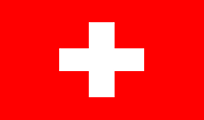A bustling wine region
Tenuta Montenisa


Franciacorta: this lively sparkling wine is Italy’s answer to Champagne.
Plozza


A Swiss-Italian success story: grapes from Tirano, cultivated in Brusio, Switzerland – an inside tip!
Selva Capuzza


This winery has been in the hands of the Formentini family of winemakers for 100 years – and it’s a good thing, too!
An excursion into the Lombardy wine region will uncover unexpected gems.
Lombardy has a higher population than any other province in Italy. Milan, the regional capital, is a veritable beehive. The Milanese are famous, or perhaps infamous, for their fast pace of life. Milan is not just one of the world’s great fashion and design capitals but also a city of art and culture – home to Milan Cathedral and the renowned La Scala opera house.
Spumante to rival Champagne
When it comes to wine, Lombardy also shows its entrepreneurial spirit. The region has 27,000 hectares of vineyards, and the winemakers there excel at a huge array of wines. For example, the grapes that grow in Franciacorta – a hilly area on the south shore of Lago d’Iseo – yield what may well be the best sparkling wine in all of Italy. Chardonnay, Pinot nero and Pinot bianco thrive on the mineral-rich gravel and limestone soils. It was here, in 1961, that the Guido Berluccio winery produced the first spumante to be made using traditional bottle fermentation. Today, this winegrowing region enjoys global success – thanks to production requirements which are so exacting that, in some regards, they even exceed those for Champagne. Riserva wines, for example, have to rest on the lees for 60 months before they can be put on the market.
The bastion of Pinot nero
You can also find high-quality sparkling wine in Oltrepò Pavese, Lombardy’s biggest certified area of origin. It stretches out south of the Po River to the border with Tuscany and Emilia-Romagna. This is where you will find the true stronghold of Pinot nero, also known as Pinot noir. More grapes of this variety are grown here than in any other region in Italy. Thus the Spumanti produced here is composed of at least 70 per cent Pinot nero, together with Chardonnay, Pinot grigio and/or Pinot bianco. Other inside tips include red wine from Oltrepò Pavese, made from Barbera and the local varieties Croatina and Uva rara.
Spicy Sforzato from the Valtellina Valley
Lugana is an uncomplicated summer wine. This is a crisp, dry white wine made from the Trebbiano grape, born on Lake Garda. And then of course there is the Valtellina. Here in the Alpine north of Lombardy – which is also the northernmost wine region in Italy – a unique speciality is produced: Sforzato or Sfursat, meaning the «forced one». This spicy, characterful red saw the light of day in 1946, as the invention of the esteemed Plozza winery. It is produced from dried Nebbiolo grapes and has to mature for 20 months before it is permitted to be sold.
Risotto in a hurry
Lombards, and the Milanese in particular, are not exactly considered great gourmands. The rest of Italy makes fun of the custom of serving Milan’s famed saffron risotto (risotto alla milanese) as a side dish with Ossobuco – it is said that the busy Signori do not even have time for a starter, so they have to eat everything at once. In reality, though, Milanese cuisine has quite a few delicacies. One of these is cotoletta alla milanese, a breaded veal cutlet whose long history rivals that of Wiener schnitzel. Another is the fine-grained Milanese salami, made from a blend of pork and beef. And we mustn’t forget panettone, that deliciously airy leavened cake. It provides a tranquil Christmas atmosphere even in the hectic metropolis.
docg areas in Lombardy
Franciacorta, Oltrepò Pavese metodo classico, Scanzo oder Moscato di Scanzo, Sforzato di Valtellina, Valtellina Superiore
doc areas in Lombardy
Bonarda dell’Oltrepò Pavese, Botticino, Buttafuoco dell’Oltrepò Pavese, Capriano del Colle, Casteggio, Cellatica, Curtefranca, Garda, Garda Colli Mantovani, Lambrusco Mantovano, Lugana, Oltrepò Pavese, Oltrepò Pavese Pinot Grigio, Pinot Nero dell’Oltrepò Pavese, Riviera del Garda Bresciano, San Colombano al Lambro, San Martino della Battaglia, Sangue di Giuda dell’Oltrepò Pavese oder Sangue di Giuda, Terre del Colleoni oder Colleoni, Valcalepio, Valtellina Rosso oder Rosso di Valtellina, Valtènesi
Key producers
Tenuta Montenisa - Marchesi Antinori, Bellavista, Ca’ dei Frati, Ca’ del Bosco, Conte Vistarino, Plozza, Selva Capuzza, Uberti





Validate your login